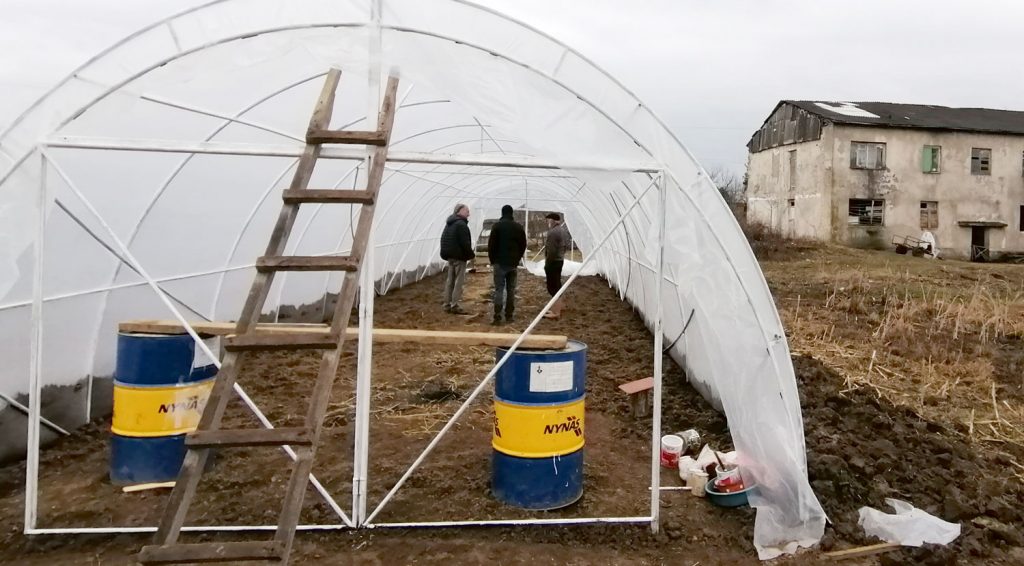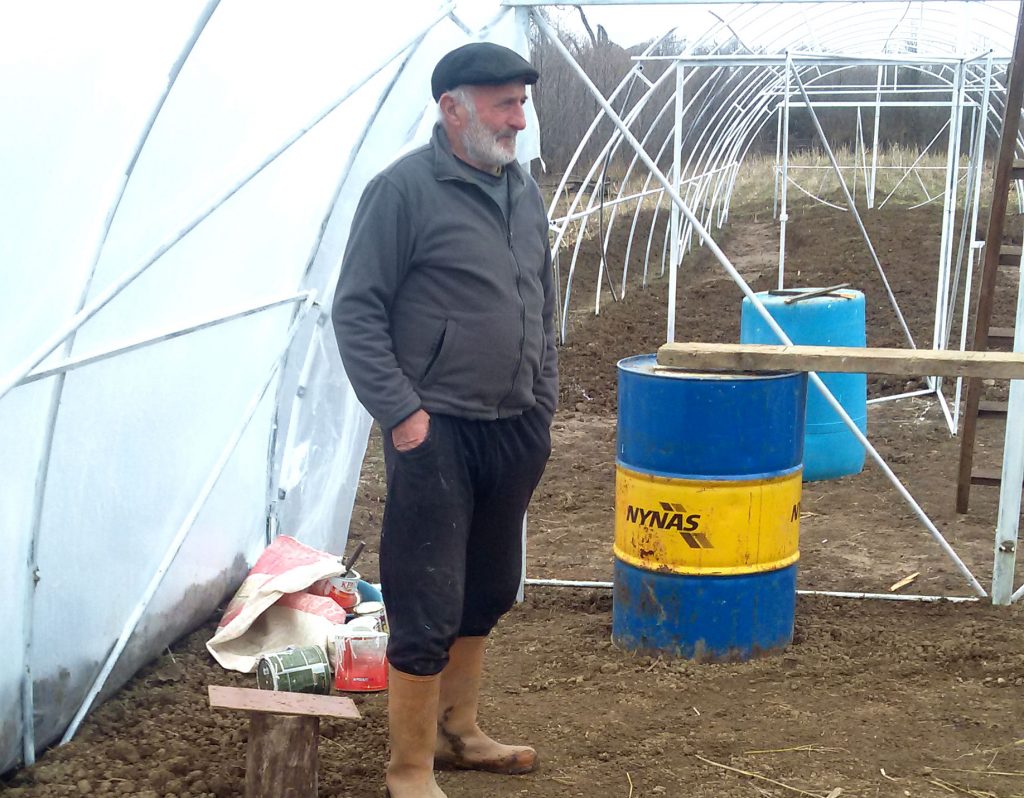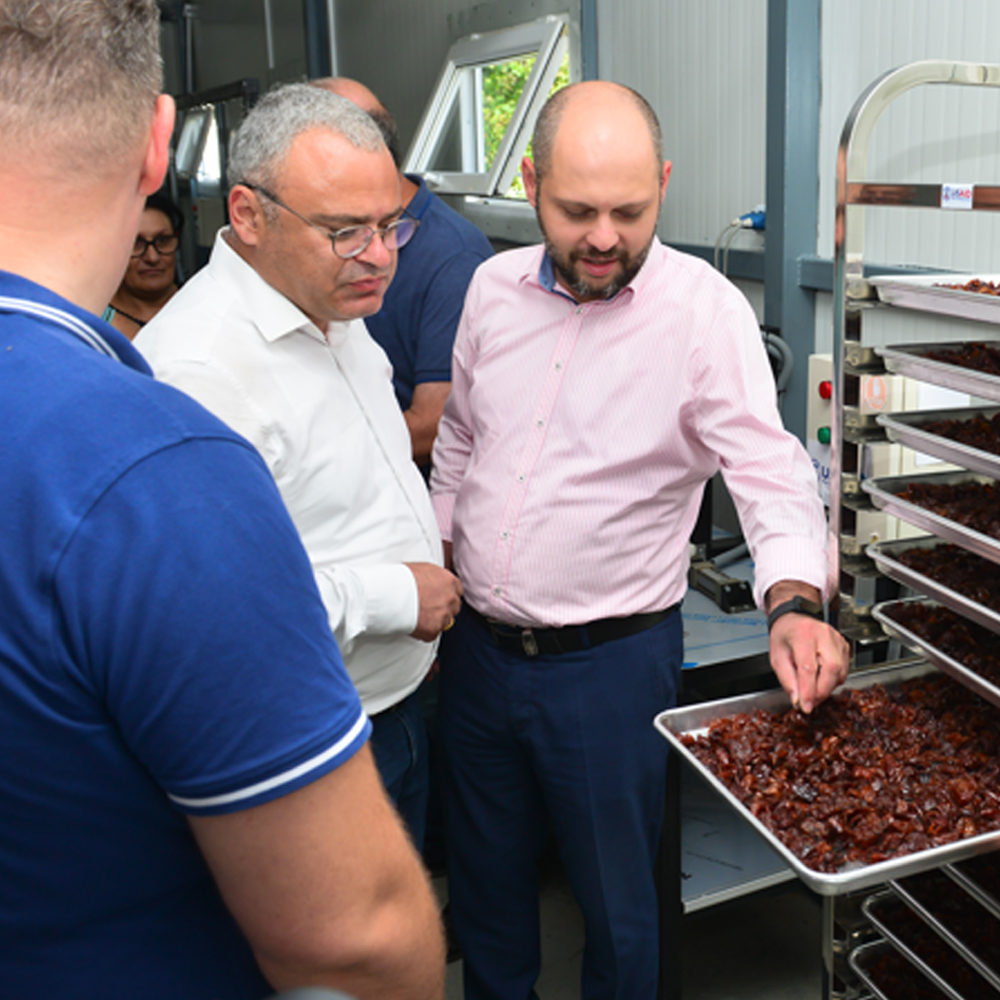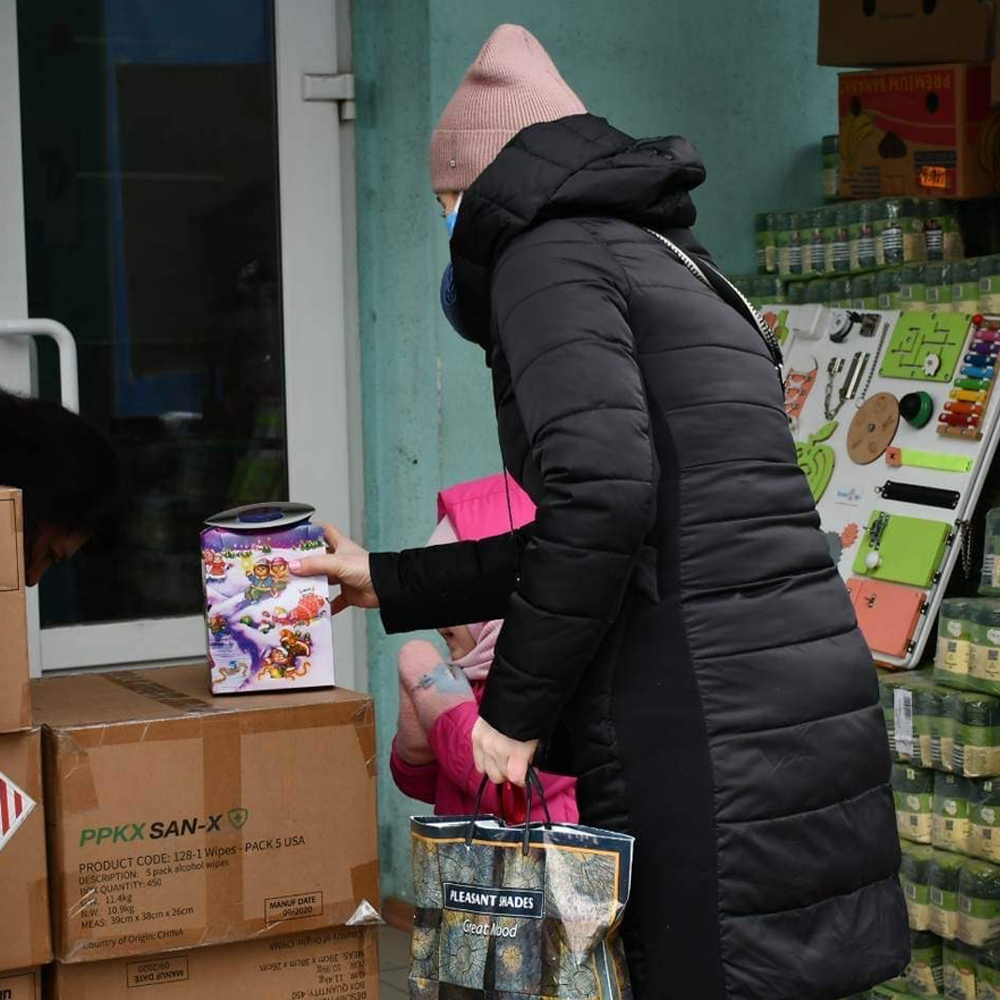
When Revaz took his family and left home, he never imagined it would be forever.
A graduate of culinary school and then chef at a prestigious hotel in Sokhumi, Georgia, Revaz had always provided well for his family. But when conflict overtook their home region, they fled to Khobi, expecting to return quickly. That was over 25 years ago.
Now they live in a settlement of four displaced Georgian families. Revaz patched together a living as a handyman. Eventually, he acquired about 3,000 m² of land near the settlement, so he and his sons began farming. The income was meager, though; Revaz, now in his 60s, hoped to do better.
Revaz’s situation is common in Georgia, where IOCC is working with internally displaced people and locals to help them improve their lives.

Citing the idea of “teach a man to fish,” Revaz said, “After so many years living in the settlement, nobody taught us how to fish. They were just bringing fish. But IOCC’s approach to teach fishing is just a great idea.”
Through training with IOCC partner Agrolink, Revaz learned early spring production techniques for field and greenhouse, which plants do best in each, and how to prevent and treat common diseases. An IOCC-built plastic greenhouse (like those on Church land in Poti and Khobi Diocese) provides space Revaz and others to earn income and practice new skills.
Revaz said, “The greenhouse is not only a source of income, but it’s the hope for the future.”




